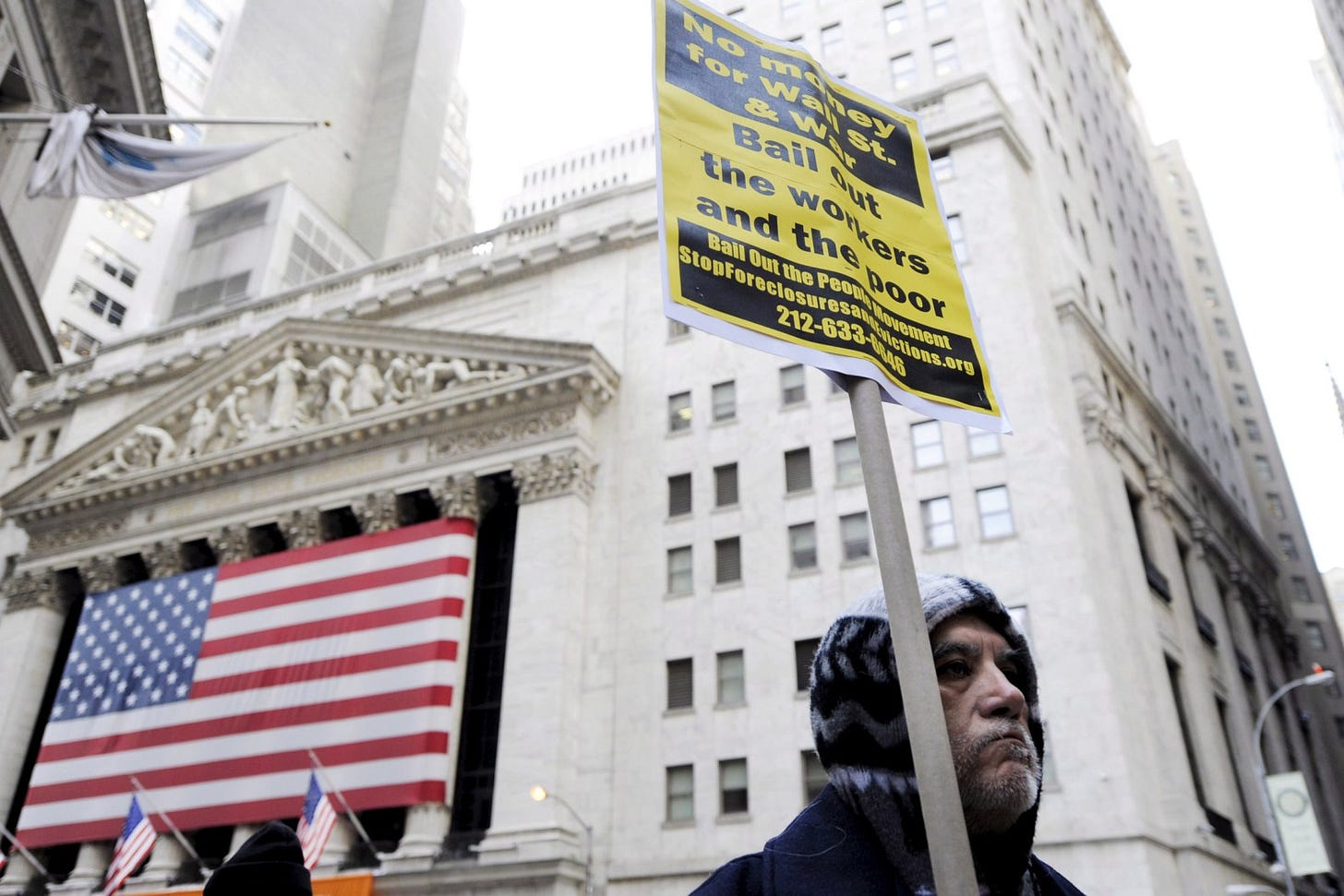What went wrong with capitalism?
A new book argues that capitalism didn’t fail, it was ruined
A Business Insider/YouGov survey in December 2023 showed nearly one third of Gen Z respondents (aged 18–26) prefer socialism to capitalism as an economic system. That compares to 77% aged 78 years and up who preferred capitalism.
How did capitalism get such a bum rap with younger people? Some say it’s because they grew up in an age of corporate greed and extreme wealth inequality. Others might blame it on the high cost of housing and education.
Most young people look at things like America’s broken healthcare system or crushing student debt and think they would benefit from more government intervention.
But that’s precisely what got us into this mess, according to Ruchir Sharma, chairman of Rockefeller International and author of a new book entitled ‘What Went Wrong with Capitalism’. He argues that, over the last century, governments have expanded their spending, regulation, and the scale of financial rescues during economic downturns, resulting in expensive state guarantees for everyone — bailouts for the rich, entitlements for the middle class, and welfare for the poor.
As Sharma wrote in a May 2024 essay in the Financial Times:
In the US, government spending has risen eight-fold since 1930 from under 4 per cent to 24 per cent of GDP — and 36 per cent including state and local spending…
Just as the American “revolution in pain management,” which insisted on treating even moderate injuries with powerful opiates, was hooking the nation on OxyContin, its approach to economic pain management was addicting the system to a drip feed of government support. During the past two decades, the US fell from fourth to 25th in the Heritage Foundation rankings for economic freedom as both regulation and debt increased.
In an effort to prevent anyone from ever suffering any economic pain, Sharma argues that governments created an environment in which monopolies, “zombie” firms, and billionaires could thrive. Loose fiscal policy is, for all intents and purposes, Oxycontin for the economy.
Capitalism, he says, didn’t fail, it was ruined... Constant government intervention and the relentless spread of a bailout culture distorted capitalism’s original intent — to ensure individual liberty and opportunity through limited government intervention.
Capitalism was built on the premise that a constrained government would allow for personal freedom and initiative, fostering an environment where individuals could thrive based on merit. It is a system that’s supposed to reward individual effort and innovation rather than distribute wealth through government support and interference.
Despite what Gen Z thinks, a bloated government in which leaders try to please everyone is more likely to further undermine growth, widen inequality, and deepen popular distrust, Sharma says. Building an even bigger state will only double down on what ruined capitalism in the first place.
A genuine departure would require restraint, finding a middle ground between 19th-century liquidationists and today’s liquefactionists. During recessions, authorities need to extend relief to the unemployed, and to keep capital and credit flowing through the financial markets when they are frozen by fear. But their recent, experimental quest for endless growth is utopian, a counterproductive step too far. They need to stop stimulating during recoveries, and to leave financial markets free enough to falter, on occasion.
Although our leaders often speak of the economy as an “engine” subject to “fine tuning,” it is more like a natural ecosystem in which humans meddle at great risk to the system and themselves. Authorities would no longer dare try to reshape forests and oceans in the name of progress, as they did a century ago — the protests would be deafening — but they can count on applause when they experiment on the economy. This thinking needs to change. Economics is not as hard a science as many imagine.
The real sciences explain life as a cycle of transformation, ashes to ashes, yet political leaders still listen to advisers claiming they know how to generate constant growth. Their overconfidence needs to be contained before it does more damage. Capitalism is still the best hope for human progress, but only if it has enough room to work.
Younger generations have become increasingly disenchanted with what they perceive to be our current capitalist system — without understanding that what we have is anything but. Nevertheless, their disenchantment is compounded by their young minds being seduced by idealogical post-secondary education that extols the virtues of fairytale collectivism. But a proper audit of economic history, as Sharma suggests, will show them the West set itself apart as a dominant, innovative force by unleashing the potential of the individual; this is something worthy of revisiting if we are to save the American experiment.





If you think Wealth inequality is bad under capitalism, wait to you see the wealth inequalities under communism, with a side order of mass murder, mass starvation, and genocide.
Best line: "Capitalism, he says, didn’t fail, it was ruined... Constant government intervention and the relentless spread of a bailout culture distorted capitalism’s original intent — to ensure individual liberty and opportunity through limited government intervention."